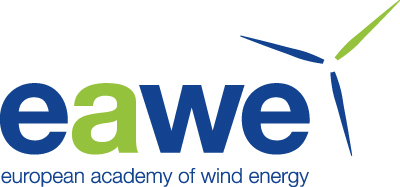the Creative Commons Attribution 4.0 License.
the Creative Commons Attribution 4.0 License.
Preference and Willingness-to-pay analysis for an eco-engineering technology for floating wind turbines
Abstract. As France accelerates its offshore wind energy ambitions to meet decarbonization targets, floating offshore wind turbines (FOWTs) have emerged as a key technology. However, concerns about their ecological and social impacts remain prominent among coastal populations. This study investigates public preferences and willingness-to-pay (WTP) for an innovative eco-engineering solution to be integrated into future floating wind farms: a multifunctional structure aiming at enhancing marine biodiversity, supporting artisanal fisheries and minimizing seabed disturbance. A discrete choice experiment (DCE) was conducted on 306 French residents across five coastal departments to quantify trade-offs and explore territorial variation in acceptability.
The DCE included four attributes: structure material (recycled or new steel), biodiversity gain, impact on local fisheries revenue, and additional cost to electricity bills. Results from a Conditional Logit Model and WTP estimation reveal a generally high level of support for eco-engineering features with biodiversity and fishery co-benefits strongly valued. Only the “recycled steel” attribute showed significant territorial variation, with Bouches-du-Rhône respondents exhibiting a higher WTP for this attribute.
The study also showed that negative attitudes toward offshore wind power were significantly associated with a higher likelihood of selecting the status quo scenario, even when ecological enhancements were present. The study underscores the importance of integrating social preferences into the early design of FOWT projects and demonstrates that eco-engineering can be a viable lever for environmental and social integration of these projects.
- Preprint
(1538 KB) - Metadata XML
- BibTeX
- EndNote
Status: final response (author comments only)
-
RC1: 'Comment on wes-2025-171', Anonymous Referee #1, 05 Nov 2025
- AC1: 'Reply on RC1', Antoine Dubois, 02 Dec 2025
-
RC2: 'Comment on wes-2025-171', Anonymous Referee #2, 19 Feb 2026
The study design addresses a pertinent and policy-relevant research question, namely, whether eco-engineering, or "nature-inclusive," enhancements included in floating offshore wind technology increase social acceptability and, if so, the willingness to pay for co-benefits by households. The design and research question are strong, the attributes are well-chosen, and the underlying behavioural assumption appears sound, namely, that individuals with very negative attitudes toward offshore wind will tend to select the status quo, regardless of the ecological and economic co-benefits.
The study, however, needs some improvement in its current form for methodological rigor and clarity, which would allow it to pass a peer-review process:
- The study, although it is present in a lengthy way, needs more clarifications on the design of the discrete choice experiment, which, in its current form, does not allow for replicability and raises concerns over its validity. For instance, the authors could include a list of the choice cards used in the study, the exact wording of the status quo option, a discussion of the experimental design approach taken, and details on randomization, blocking, and measures taken to prevent respondent fatigue and attribute non-attendance.
- From an econometric standpoint, the use of a conditional logit model without addressing the issue of repeated choice tasks by respondent is questionable. At the very least, clustered standard errors by respondent should be reported and acknowledged, or a panel mixed logit (random parameters) or latent class model could be used (or at least discussed) to address heterogeneity in preferences and segments of the sample, which would also be consistent with the later discussion of status quo propensity.
- Communication of the results, specifically the WTP, could be clarified. Since the biodiversity and fisheries impacts are expressed as percentage changes, the WTP values are technically expressed as percentage points. Consider reporting the WTP values corresponding to policy-relevant changes (e.g., +10 percent biodiversity, +5 percent fisheries income) and a range of bundles, along with confidence intervals.
- Finally, there are some internal inconsistencies in the results that affect the overall credibility of the findings. Table 6 has an error in the “>4 times status quo” column, which incorrectly sums to 49 instead of 449. The results in the Spearman correlation table are questionable and should be tightened or removed. If the table is retained, the issue of multiple testing should be addressed. The ZINB model, given the bounded range of 0 to 8, is questionable and not ideal. Consider a different model, perhaps a bounded model, or integrating status quo behaviour into the choice model.
Citation: https://doi.org/10.5194/wes-2025-171-RC2
Viewed
| HTML | XML | Total | BibTeX | EndNote | |
|---|---|---|---|---|---|
| 349 | 112 | 38 | 499 | 35 | 45 |
- HTML: 349
- PDF: 112
- XML: 38
- Total: 499
- BibTeX: 35
- EndNote: 45
Viewed (geographical distribution)
| Country | # | Views | % |
|---|
| Total: | 0 |
| HTML: | 0 |
| PDF: | 0 |
| XML: | 0 |
- 1





Please see the attached pdf file.